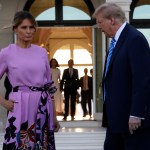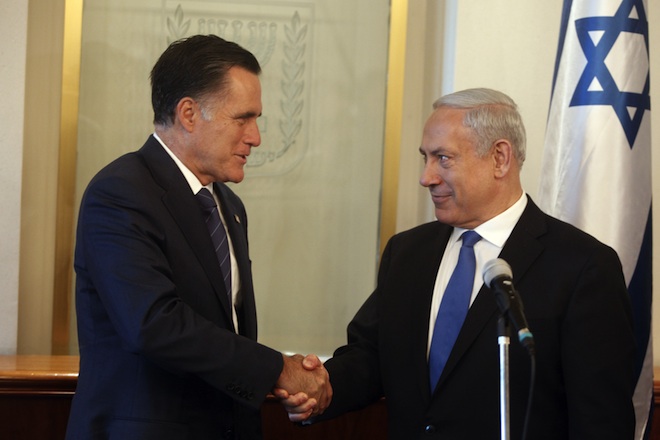On Sunday, Mitt Romney boldly declared that Israel’s economic superiority over the Palestinians was due to its culture. On Tuesday morning, he dismissed any notion that he had even discussed Palestinian culture. On Tuesday night, Romney reversed himself yet again, in an op-ed entitled “Culture Does Matter.”
“During my recent trip to Israel, I had suggested that the choices a society makes about its culture play a role in creating prosperity, and that the significant disparity between Israeli and Palestinian living standards was powerfully influenced by it,” Romney wrote in the National Review. “In some quarters, that comment became the subject of controversy. But what exactly accounts for prosperity if not culture?”
In an interview earlier the very same day with FOX News, Romney told interviewer Carl Cameron that he “did not speak about the Palestinian culture or the decisions made in their economy” and that he “certainly [doesn’t] intend to address that during my campaign.”
That interview appeared to be directly at odds with Romney’s original speech, in which he directly compared the per capita GDP of Israel and the Palestinian territories and attributed Israel’s comparative strength to “culture” and the “hand of providence.” It also directly contradicts the first paragraph of his National Review op-ed, in which he explicitly says he was comparing the two economies and cultures.
In his op-ed, Romney went on to make a point about economic policy, arguing that open markets and freedom were superior to closed communist systems and citing the former West Germany and East Germany as proof — two countries that, ironically, shared an identical national culture before being separated by war.
“The linkage between freedom and economic development has a universal applicability,” Romney wrote. “One only has to look at the contrast between East and West Germany, and between North and South Korea for the starkest demonstrations of the meaning of freedom and the absence of freedom.”
The unremarkable suggestion that capitalist democracy is superior to communist authoritarianism was hardly the source of the controversy over his Jerusalem remarks, however. Romney’s op-ed did not address the central objection Palestinian officials raised over his comments: that he suggested Palestinian poverty was due to “culture” without acknowledging that the territory is under a decades-long military occupation and residents face restrictions on movement and trade.









